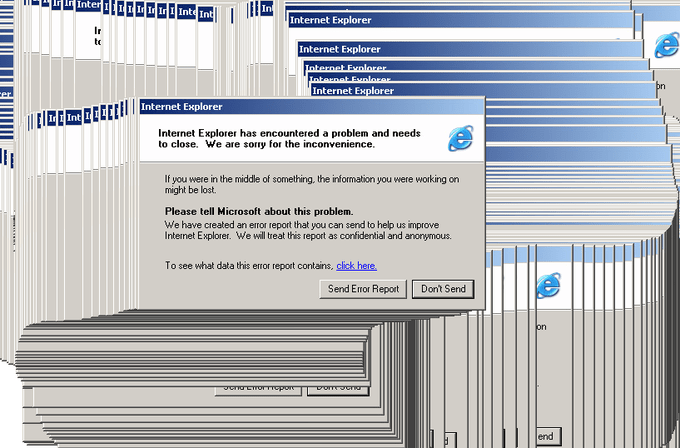While reading through a Wikipedia article on web design, I came to know that just roughly two decades ago, the now-defunct browser “Internet Explorer” dominated the market with 96 percent of the web browser usage share.
Since then, technology has advanced, and web development has shifted toward an open-source, mobile-first approach. In 2004, Mozilla produced the first Firefox browser, and 4 years later, Google debuted Chrome, which was an instant hit.
Internet Explorer’s market share fell below 50 percent in 2010, and Google Chrome eclipsed Internet Explorer as the world’s most popular web browser in 2012. At the time of its retirement in June 2022, Internet Explorer users were less than 1 percent of all internet users.
So, what went wrong?

Internet Explorer was an excellent example of an enterprise that felt it was too large to fail. It may have gotten rid of Netscape as a competitor in the 1990s, but the lack of competition between then and the middle of the 2000s made it do nothing and stop coming up with new ideas.
Internet Explorer’s flaws were not completely recognized or widely discussed until alternatives were developed. It was very rarely updated. Google updated its Chrome browser 70 times in the decade after its introduction. Microsoft only updated Internet Explorer four times over that period.
Microsoft’s marketing was abysmal. With its security and technological superiority, Firefox became every nerd’s favorite browser, while Chrome marketed its Incognito function and cross-platform capabilities. During that period, Internet Explorer simply… existed.
Although Microsoft introduced Edge as the replacement for Internet Explorer in 2015, people had already shifted to Chrome, Safari, Firefox, and other browsers, as well as whatever came standard on their phones.
Even in its early phases, Microsoft Edge was a non-starter. It failed due to a lack of marketing, and those who did use it reported unpleasant interfaces and glitches. This was because Microsoft continued to utilize its rendering engine, for which developers did not bother optimizing web pages. When a website is not created for a certain browser, a plethora of technical issues occur.
Even if and when Edge catches up to its rivals in terms of technology, it will be too little, too late for the time being. This does not, however, rule out the potential of anything similar occurring again. Who knows, Edge might one day eventually replace Chrome in the same manner that Google did with Internet Explorer, with stronger technology and superb marketing.

Sakib Noor is an Engineer and Financial Analyst residing in Vancouver, Canada



